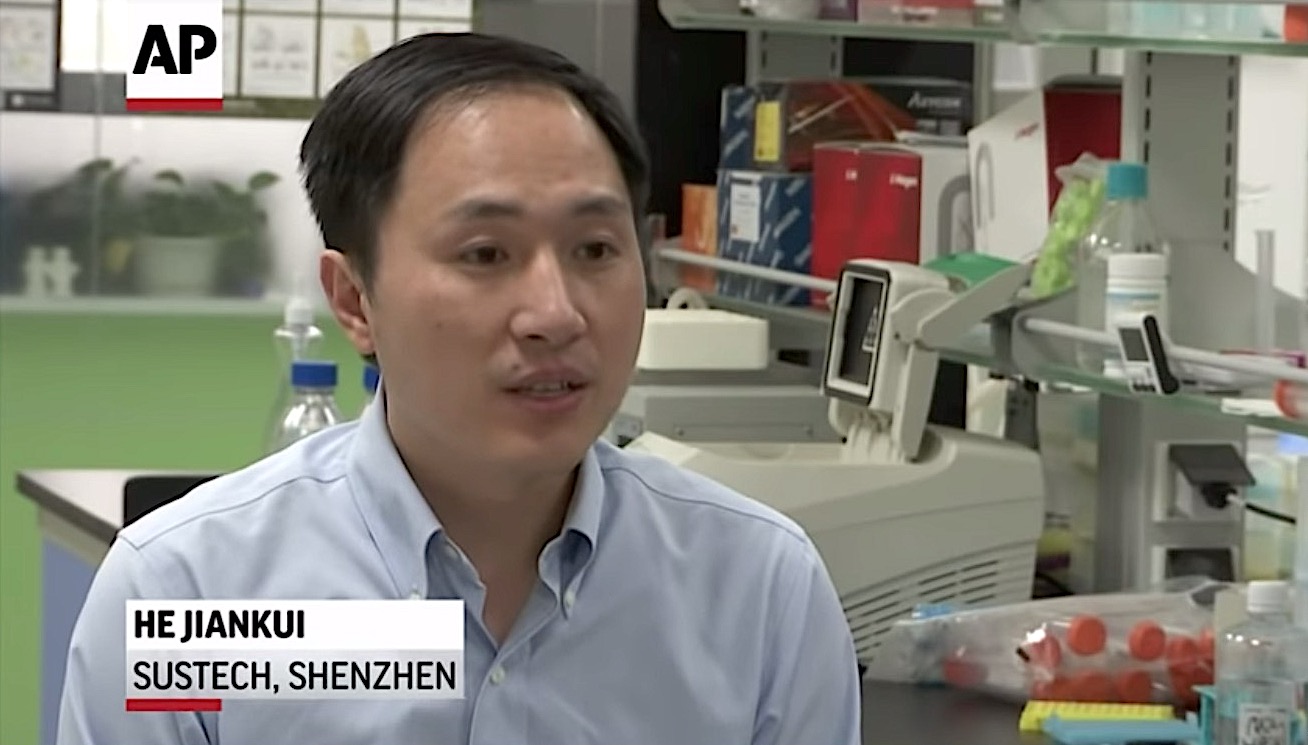Chinese researcher announces controversial birth of first genetically modified babies


A free daily email with the biggest news stories of the day – and the best features from TheWeek.com
You are now subscribed
Your newsletter sign-up was successful
Late Sunday, Chinese researcher He Jiankui announced that he had helped create the world's first genetically edited babies, twin girls born earlier in November. If verified, this would be a big and controversial leap in science. He said he used a new gene-editing tool called CRISPR-cas9 to remove a gene called CCR5 from embryos fertilized in a lab, in an attempt to make the genetically modified children immune to HIV, the AIDS virus. Most bioethicists and experts in the gene-editing field condemned the work as premature and morally indefensible.
Gene editing has only recently been used in adults to treat fatal disease, but "editing sperm, eggs, or embryos is different — the changes can be inherited," The Associated Press reports. "In the U.S., it's not allowed except for lab research. China outlaws human cloning but not specifically gene editing." The modifications He attempted to make weren't aimed at preventing the children from being born with HIV via their HIV-positive fathers, since "there are simple ways to keep them from infecting offspring that do not involve altering genes," AP notes. "Instead, the appeal was to offer couples affected by HIV a chance to have a child that might be protected from a similar fate," and that's how He pitched the experiment to participants.
The Chinese researcher He had some assistance from a U.S. colleague, Rice University physics and bioengineering professor Michael Deem. "Both men are physics experts with no experience running human clinical trials," AP notes. One of the twins had both CCR5 gene removed and the other only one, He said, citing preliminary tests, but several scientists who reviewed what research He released told AP those tests are insufficient to show the editing worked as intended or to rule out harm to the girls. The parents, identified as Grace and Mark, did not want to be identified or interviewed, He said.
The Week
Escape your echo chamber. Get the facts behind the news, plus analysis from multiple perspectives.

Sign up for The Week's Free Newsletters
From our morning news briefing to a weekly Good News Newsletter, get the best of The Week delivered directly to your inbox.
From our morning news briefing to a weekly Good News Newsletter, get the best of The Week delivered directly to your inbox.
A free daily email with the biggest news stories of the day – and the best features from TheWeek.com
Peter has worked as a news and culture writer and editor at The Week since the site's launch in 2008. He covers politics, world affairs, religion and cultural currents. His journalism career began as a copy editor at a financial newswire and has included editorial positions at The New York Times Magazine, Facts on File, and Oregon State University.
-
 Political cartoons for February 16
Political cartoons for February 16Cartoons Monday’s political cartoons include President's Day, a valentine from the Epstein files, and more
-
 Regent Hong Kong: a tranquil haven with a prime waterfront spot
Regent Hong Kong: a tranquil haven with a prime waterfront spotThe Week Recommends The trendy hotel recently underwent an extensive two-year revamp
-
 The problem with diagnosing profound autism
The problem with diagnosing profound autismThe Explainer Experts are reconsidering the idea of autism as a spectrum, which could impact diagnoses and policy making for the condition
-
 Nobody seems surprised Wagner's Prigozhin died under suspicious circumstances
Nobody seems surprised Wagner's Prigozhin died under suspicious circumstancesSpeed Read
-
 Western mountain climbers allegedly left Pakistani porter to die on K2
Western mountain climbers allegedly left Pakistani porter to die on K2Speed Read
-
 'Circular saw blades' divide controversial Rio Grande buoys installed by Texas governor
'Circular saw blades' divide controversial Rio Grande buoys installed by Texas governorSpeed Read
-
 Los Angeles city workers stage 1-day walkout over labor conditions
Los Angeles city workers stage 1-day walkout over labor conditionsSpeed Read
-
 Mega Millions jackpot climbs to an estimated $1.55 billion
Mega Millions jackpot climbs to an estimated $1.55 billionSpeed Read
-
 Bangladesh dealing with worst dengue fever outbreak on record
Bangladesh dealing with worst dengue fever outbreak on recordSpeed Read
-
 Glacial outburst flooding in Juneau destroys homes
Glacial outburst flooding in Juneau destroys homesSpeed Read
-
 Scotland seeking 'monster hunters' to search for fabled Loch Ness creature
Scotland seeking 'monster hunters' to search for fabled Loch Ness creatureSpeed Read
